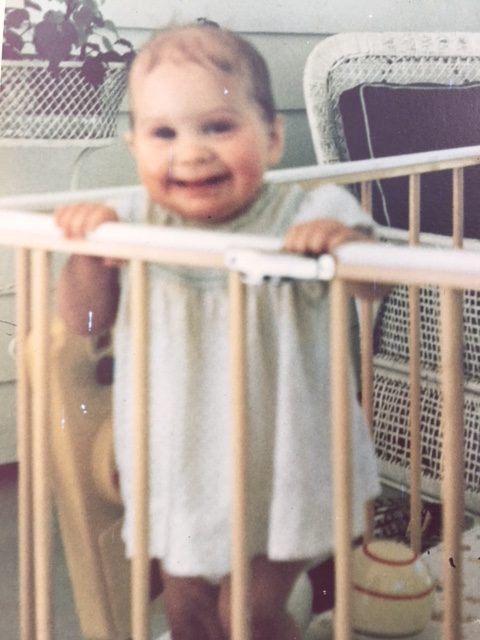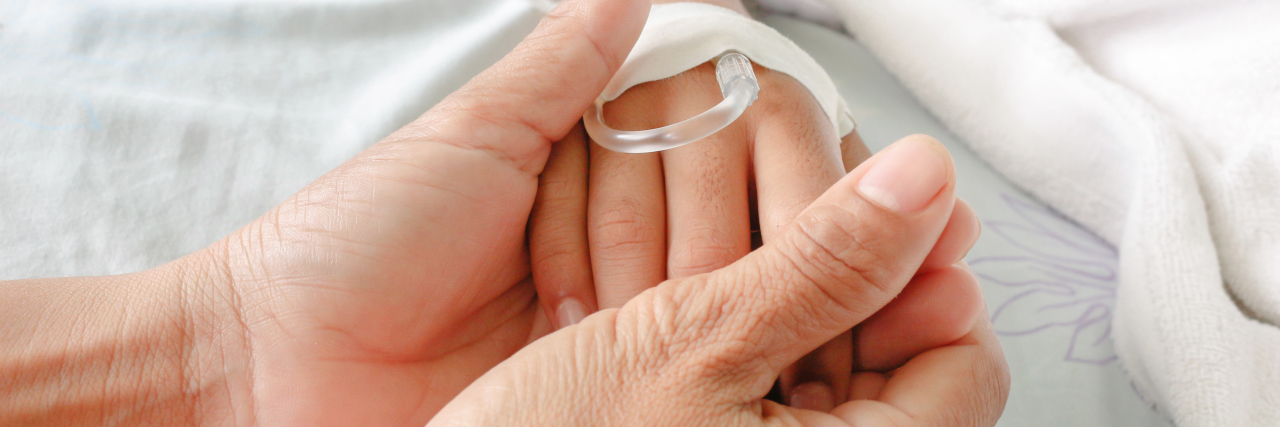Why These Natalie Merchant Lyrics Remind Me of My Journey With Illness
“Doctors have come from distant cities just to see me. Stand over my bed disbelieving what they’re seeing. They say I must be one of the wonders of God’s own creation. And as far as they see they can offer no explanation… Oh I believe Fate smiled at Destiny. Laughed as she came to my cradle. Know this child will be able. Laughed as my body she lifted. Know this child will be gifted. With love, with patience, and with faith she’ll make her way.” –Natalie Merchant
I am not sure when I first heard Natalie Merchant’s song “Wonder,” but each time I do hear it, it resonates deeply with me and I feel incredibly witnessed and uplifted.
In the early morning hours of my birth, the doctor gravely informed my parents that he had little hope for my survival. He actually discouraged my mother from naming me, in a misguided effort to help her accept the inevitable. I was born with a rare genetic skin disorder, congenital ichthyosiform erythroderma (CIE). I made my first appearance on Earth encased in a collodian membrane -– a tight outer layer resembling plastic wrap, looking as my father loves to say, “like a shiny red sausage.”

The doctors didn’t know what to make of me. They had no name for my symptoms, no explanation for my appearance. But their worry about my skin’s ability to provide a sufficiently protective barrier led them to believe I would not survive. I spent one month alone in the hospital, as doctors searched high and low for a diagnosis. Parental visits were discouraged.
They finally suggested my parents seek an answer at a larger children’s hospital. My parents held me for the very first time in the back seat of the car, as their friends drove them the hour and a half to New York City. Another month passed before I was discharged, still without a diagnosis. The hospital cautioned my parents that the road ahead would be a rough one, and they highly recommended my family employ a full-time nurse to see to my complicated needs. My mother balked at this. “I’m her mother,” she said. “I am the only nurse she needs.”
My diagnosis came soon after, when Dr. Charles Sheard, a dermatologist in Stamford, CT, observed that I had the same symptoms as one other patient he had read about in some “obscure” medical journal. Dr. Sheard took me on as a regular patient, seeing me once a week for the first year of my life, then monthly, and as I continued to grow and develop, annually throughout my teen years. He never charged my parents a dime.
Although I suffered some complications and hospitalizations during childhood, my health stabilized and I have grown to live a full and rich life with few limitations. When dermatologists examine me now, they remark at the seemingly mild case of ichthyosis I have, compared to other patients whose condition greatly impacted their development, mobility, and appearance.
I did, however, struggle with post-hospital trauma in the form of sleep disturbances, sensory issues, and severe separation anxiety. Then came the bullying in school. But I had several resilience factors at play in my life. I grew up listening to my parents tell me stories of my early health challenges, referring to me as a survivor and a fighter. My mother too was a fighter and fierce advocate for my medical and emotional needs throughout my growing years.
It should come as no surprise that I decided to become a child life specialist as an adult, advocating for the emotional and developmental needs of children facing illness in hospitals and their communities. Natalie Merchant’s song “Wonder” reminds me of the miracle of my birth and life — how I surprised the naysayers, and how my mother saw the possibilities and joy in my birth more than the dire prognosis.
To learn more about the many forms of icthyosis, check out the Foundation for Icthyosis and Related Skin Types.

